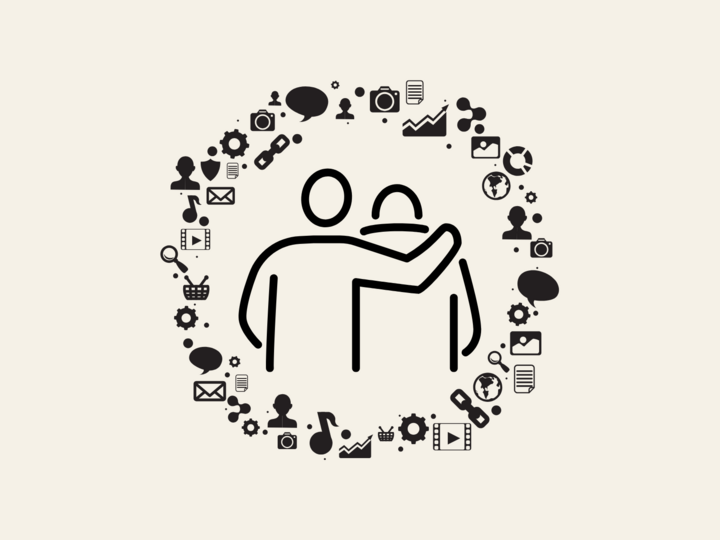From October through December, our final quarter of programming will focus on Social Well-Being. During this quarter we will wrap up our year of programming with a 14 day digital detox program, our annual Wellness and Community Resource Fair, a 4-week sustainability program, and the final calendar offerings of the Rest and Reset Program.
We will cap off our HealthierU 2025 program with the Celebration of Well-Being in early December. All program points must be submitted no later than November 30, 2025. Invitations for the Celebration of Well-Being will be sent out starting in early November. For questions regarding your current point total, please contact us directly at unl.HealthierU@nebraska.edu.

Quarter 3 Detail Chart
| Program Title | Date(s) | Location | Well-Being Points |
| Digital Detox 14 Day Mini-Program | 10/13-10/24/2025 | Virtual | 20 |
| Employee Wellness and Community Resource Fair | 10/21/2025 | UNL Coliseum | 30 |
| From Pantries to Presents, Sustainability Program | 10/27-11/21/2025 | Virtual | 30 |
| Rest and Reset Class (In-Person or Virtual) | Various | Class Dependent | 5 per class (max 4) |
Digital Detox
Program Registration Dates: October 1-10, 2025
Program Dates: October 13-26, 2025
Program Description: In our tech-saturated world, it's easy to feel overwhelmed by constant notifications and screen time. Our 14-Day Digital Detox Program is designed to help you reclaim your time, reduce stress, and rediscover offline activities that nurture your well-being. Over the next two weeks, you'll choose at least one of the following activities to integrate into your daily routine:
1.) No Screen Before Bedtime: Commit to turning off your phone or tablet at least 30 minutes before your intended bedtime. This practice can improve sleep quality and help you unwind without digital distractions.
2.) Reduce Screen Time by 10%: Using your current screen time as a baseline, aim to reduce your daily usage by 10% over the course of the program. This gradual reduction can help break habits and encourage more mindful device use.
3.) Swap Tech Habits for Offline Alternatives: Identify one daily activity that typically involves technology, such as scrolling through your phone during lunch or watching TV during dinner, and replace it with a non-tech alternative. This could be engaging in conversation, enjoying a meal without screens, or taking a walk.
4.) Incorporate a New Non-Tech Habit (15 minutes/day): Dedicate at least 15 minutes each day to a new habit that doesn't involve technology. Some examples of activates that you an incorporate include:
- Painting
- Crafting
- Reading
- Exercising
- Meditating
- Baking/Cooking
- Cleaning/Decluttering
- Journaling
On the first day of the challenge, participants will receive a program packet which includes the details for daily reflections. Participants will complete a daily journaling exercise to reflect on how incorporating one of these choices has made an impact on their well-being. There is no requirement to submit these journal reflections, the only additional requirement to earn the participation points for this program would be to complete a mid-point check-in webform and an end-of-program evaluation form. These forms will be sent directly to the participants email.
From Pantries to Presents: Husker Holiday Reset
Challenge Registration Dates: October 6-24, 2025
Challenge Dates: October 27-Novemeber 23, 2025
As the holiday season approaches, it's the perfect time to cultivate sustainable habits that benefit both our well-being and the environment. This 4-week collaboration program with the Office of Sustainability offers practical, actionable steps to help you reduce waste, make mindful choices, and prepare for a more sustainable holiday season and beyond.
Weekly Themes & Focus Areas:
Week 1: Audit Your Food Ware: Start by evaluating your kitchen storage solutions. Are your drawers filled with mismatched containers? This week, we'll explore creative ways to reduce waste by transitioning from single-use to reusable food storage options.
Week 2: Audit Your Pantry: Take a closer look at your pantry. Do you have items that were purchased with good intentions but remain unused? This week, we'll focus on reviewing your pantry to identify items that can be used, donated, or composted.
Week 3: "Sleigh" Gift Giving: Reevaluate your gift-giving habits. This week, we'll focus on ways to be more mindful, intentional, and sustainable in our gift-giving practices!
Week 4: Apply It: After three weeks of new habits and insights, it's time to integrate these practices into your daily life. This final week focuses on maintaining sustainable habits beyond the holiday season.